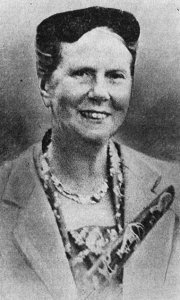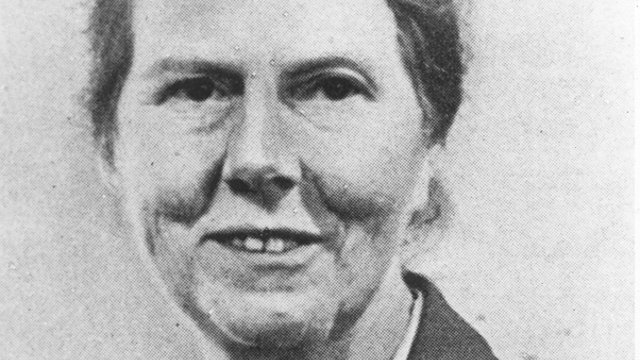Dr Marjory Warren was a co-founder of the Medical Society for the Care of the Elderly (later renamed the British Geriatrics Society) and her work is credited with the formalisation of geriatrics as a medical specialty within the NHS.
Warren, Marjory Winsome (1897–1960), geriatrician, was born on 28 October 1897 at 15 Scarborough Road, Stroud Green, Hornsey, London, eldest of five daughters of Walter Richard Warren (d. 1930), barrister, and his wife, Annie née Dixon. Her younger sister later achieved prominence as a medical social worker.
Marjory was educated at the North London Collegiate School and trained in medicine at the Royal Free Hospital, London; she qualified LRCP MRCS in 1923. After junior posts at the Queen's Children's Hospital, Hackney, and at the Royal Free and Elizabeth Garrett Anderson hospitals, she became assistant resident medical officer at the Isleworth Infirmary in 1926. She was promoted to be deputy medical director in 1931, and after the inception of the National Health Service in 1948 she became consultant physician.
Warren's early interest was in surgery but she later concentrated on medicine and medical administration. In 1935 the Isleworth Infirmary took over responsibility for the adjacent workhouse (Warkworth House) to form the West Middlesex County Hospital. During 1936 Warren systematically reviewed the several hundred inmates of the old workhouse wards. ‘In the same ward were to be found senile dements, restless and noisy patients who required cot beds, incontinent patients, senile bed-ridden patients, elderly sick patients who were treatable, patients who were up and about all day, and unmarried mothers with infants’ (Lancet, 656).
In two seminal papers, in the British Medical Journal and the Lancet, Warren advocated the creation of a medical speciality of geriatrics, the provision of special geriatric units in general hospitals, and the teaching of medical students in the care of elderly people by senior doctors with specialist interest and experience in geriatrics.
Warren helped some of the unmarried mothers back into the community by finding them employment and was able to discharge other patients to their own homes or to residential care by providing active rehabilitation and appropriate equipment. Many of the patients were old and infirm and for these Warren's approach was to match care to needs by a system of classification. The success of her active approach to the rehabilitation of stroke victims had a particular and lasting impact on medical practice. She also initiated the upgrading of wards, thereby improving the morale of both patients and staff.

